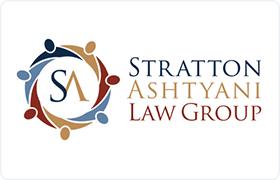Montvale Wills & Probate Lawyer, New Jersey
Sponsored Law Firm
-
 x
x

Click For More Info:
-
Stratton Ashtyani Law Group
795 Franklin Avenue Suite 206 Franklin Lakes, NJ 07417» view mapEstate Law Dedicated To Helping Families Plan
Our attorneys are experienced litigators who understand the importance and efficiency of preventing litigation through proper planning.
800-706-9810
Includes: Estate Administration, Living Wills, Wills
 Nima Ashtyani Franklin Lakes, NJ
Nima Ashtyani Franklin Lakes, NJ Practice AreasExpertise
Practice AreasExpertise
